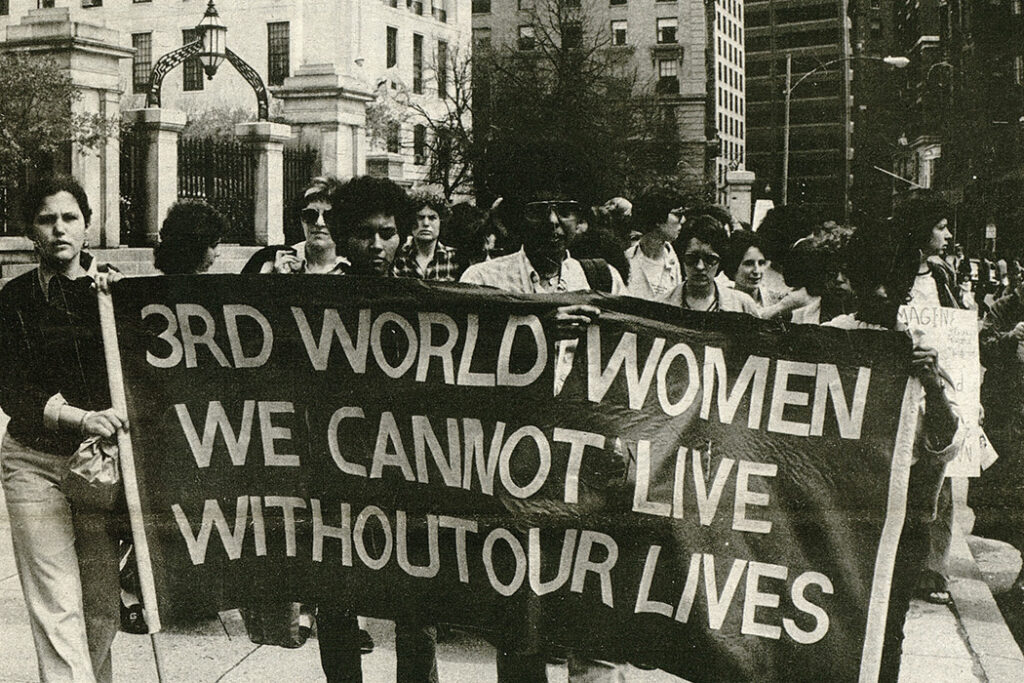Today is the last day of March, 2022, the start of the Spring season here in New York City, but we could also look at these fraught times as the start of more hopeful times to come. Changes, whether as frightening as the current war and the Pandemic, could be helping to raise our consciousness to clamor for greater and more positive changes in our society.
In one of our courses at LALS, specifically The Latina in Latinx Studies, we are currently studying the words of Latina writers across disciplines. We examine the contributions of Latinas in the late 20th century and the start of this one, as the documents that have helped to build the corpus of texts known today as Latinx Studies. These works, spanning the cultural and academic fields as well as grassroots- on the street activism- are the foundational documents that we study today. It is a growing body of work that develops ever more significance for liberatory and decolonial theory.

Today, we will share a link to a publication that connects Black women’s theoretical and political writing to Latina women’s activism from the late 1970s, when, as women of color/Third World women in the U.S., Black and Latina women worked together to do the hard work of thinking ourselves towards freedom consciousness. One of the foundational texts studied in our program, Latin American & Latin@Studies, is the Combahee River Collective Statement, which was written in 1977 and published in 1979. Personally, as the author of this post, I can tell you that I recall being present in meetings in the Boston area when Black lesbian feminist theories and activist, Barbara Smith, stood up to announce the publication of this now famous and indispensable statement.
You can read it here, by following this link to the J-STOR Annotation Series, and you can also print and download it to read it anytime. It is a serious text that demands study and concentration. Though it is clearly written in simple and direct language, the importance of these words by women of color cannot be read quickly. Indeed, these words should be read slowly and allowed to resonate within us, for they are intended to aid in the liberation of everyone, all people, of all colors, classes, and genders, ages and abilities. Enjoy, and Happy March 31, which is International Day of Transgender Visibility. Let us come together, support each other, and move forward.


